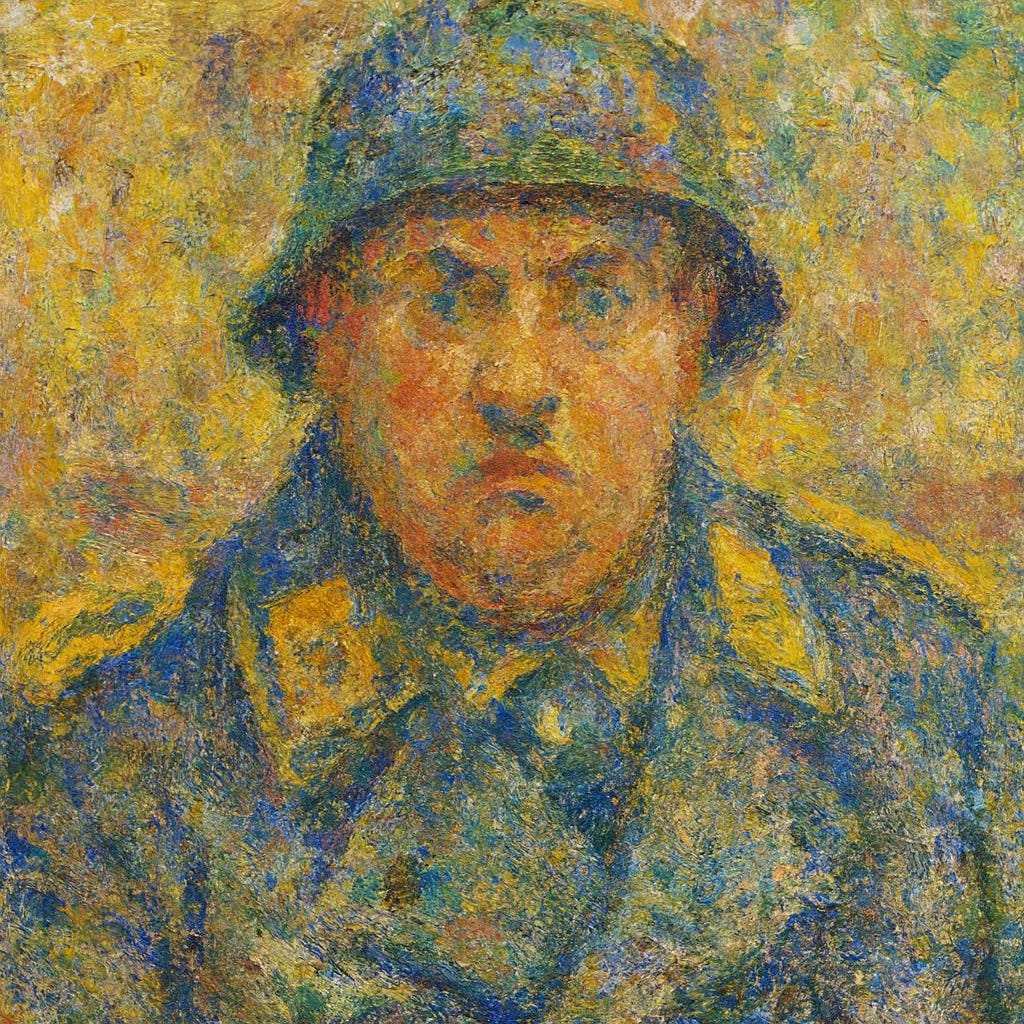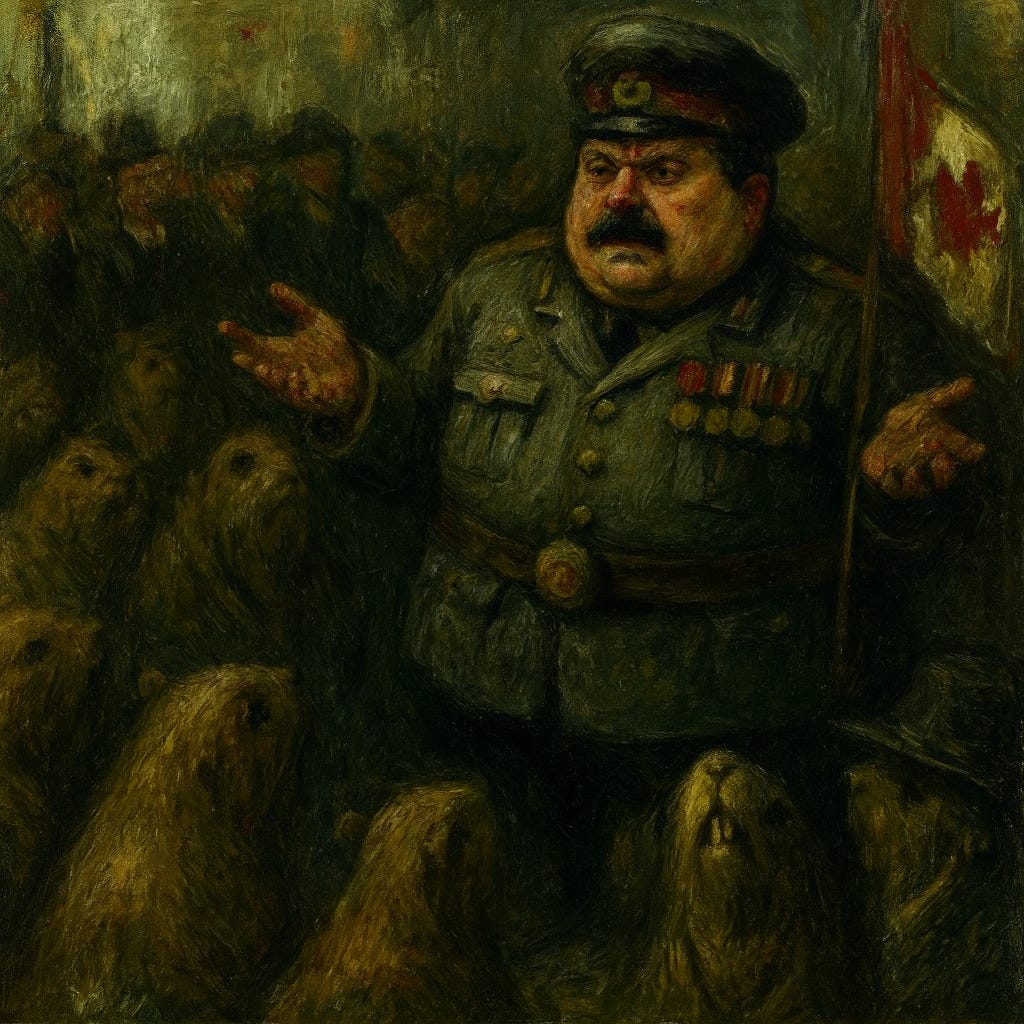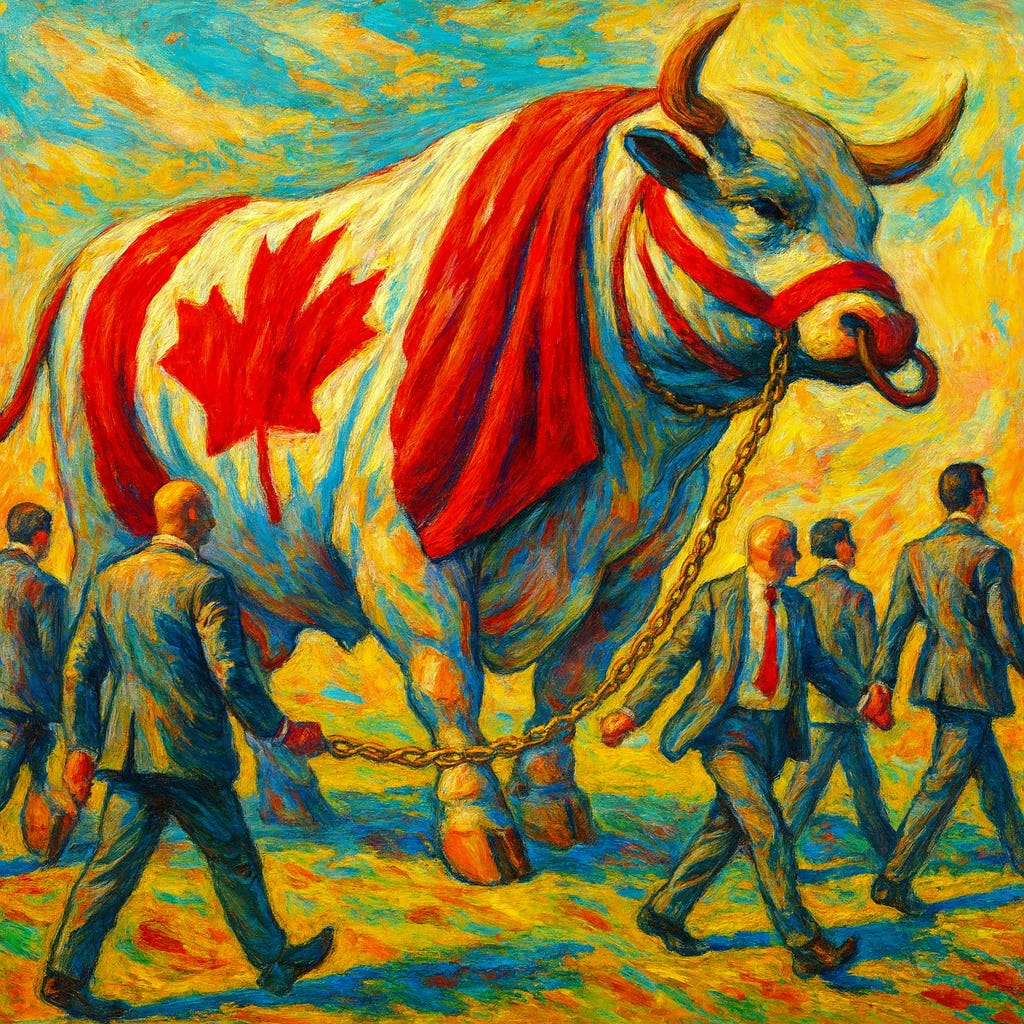The Schultz Doctrine: Canada’s Proud Tradition of Knowing Nothing
In which Canada’s leaders prove that responsibility is optional, but PR spin is forever.
If you believe in the importance of free speech, subscribe to support uncensored, fearless writing—the more people who pay, the more time I can devote to this.
Please subscribe to receive at least three pieces /essays per week with open comments. It’s $6 per month, less than USD 4. And now take 50% off.
Everyone says, "Hey, it’s just a cup of coffee," but please choose my coffee when you come to the Substack counter. Cheers.
The early 1970s TV show Hogan’s Heroes was a comedy set in a German POW camp. This environment did not naturally breed humour.
The early 1970s sitcom Hogan’s Heroes was an oddity: a laugh-track romp set in a German POW camp. The writers gave us Sgt. Schultz, the bumbling guard whose motto, “I know nothing, I saw nothing,” became his all-purpose answer to any question.
On TV, this was comic relief. In real life, it’s a governing philosophy—and one that’s migrated from post-war Germany to the corridors of Ottawa.
Trudeau/Carney’s Liberals have elevated Schultz’s line from slapstick to statecraft. In their hands, ignorance is not a bug; it’s a feature. “We didn’t know” is the reflexive reply to every blunder, scandal, or collapse.
And, as if by magic, plausible deniability becomes plausible immunity. It is the politics of cultivated ignorance, honed not in the backrooms of Parliament but in the war rooms of PR consultancies.
Take foreign interference. CSIS warnings about Chinese election meddling were floating around government offices as early as 2019. Yet cabinet ministers somehow didn’t “see” the memos. When the Globe and Mail broke the story, the Prime Minister looked as startled as a tourist confronted by a bear, insisting he had no idea.
The Hogue Commission was duly convened—grand title, large budget—and promptly bogged down in bureaucratic molasses, producing little more than expensive stationery and a year’s worth of platitudes. Compare that to Australia, which built an entire legal framework to counter foreign meddling in less time than it takes Ottawa to form a subcommittee.
Or look at the debt spiral. Interest payments now exceed national healthcare spending—a statistic that in any serious country would cause resignations. Yet our Finance Minister chirps about “investing in the future” as if the future were some vague brunch appointment in 2043.
One senior Liberal even summed up the government’s fiscal philosophy with breathtaking candour: low interest rates, they said, were “an invitation to spend as much as possible,” with no evident thought to the return on those “investments.”
When pressed, the government retreats to the Schultz Defence: they simply didn’t realise the debt would cost this much, this fast. Funny—every economist outside government saw it coming two years ago.
The party nomination process is another exercise in deliberate opacity. Candidates are parachuted into ridings like NATO troops into Bosnia, often bypassing local members entirely.
Allegations of foreign funding or influence in these contests? “We do not know of that,” say the Liberals—until the next leak proves they had the documents all along. Then the refrain changes to: “Well, we didn’t read them.”
The rot extends to security. Remember when Canada granted citizenship to an admitted member of a listed terrorist group? The defence was classic Schultz: “We were unaware of the video footage in which he brags about beheadings.”
A Google search would have found it in 12 seconds. Meanwhile, CSIS admits—almost sheepishly—that American intelligence agencies are often the ones tipping us off to domestic threats.
This habit of weaponising ignorance is useful in three ways. First, it shields the government from hard questions: if they didn’t know, how can they be guilty? Second, it allows them to scapegoat the bureaucracy—“the system failed,” not the people running it. Third, it leaves the opposition flailing; you can’t pin culpability on someone who claims to have been blissfully uninformed.
Ex-Defence Minister Bill Blair turned this into an art form. Whether it’s the ArriveCan debacle, the botched Nova Scotia mass shooting inquiry, or the 54-day delay in approving an investigation into Chinese interference by a Liberal ally, Blair’s mantra remains: “That memo never crossed my desk.”
He even admits he prefers to have emails printed out—what better way to ensure crucial information can be “misplaced” in a filing cabinet?
Foreign Minister Mélanie Joly, for her part, gives the impression she was cast as Canada’s top diplomat after winning a reality TV contest. When challenged on any substantive blunder—be it the state of our embassies or foreign policy missteps—she pivots into a fog of buzzwords about “dialogue” and “multilateral engagement,” while the actual file languishes.
This isn’t a mere accident; it’s a system. The Schultz Doctrine is Ottawa’s insurance policy against consequences. It is why commissions stall, why inquiries fade, and why ministers can stand at the microphone, mouths full of wind, and survive. Over time, it’s not just the politicians who adopt it. The public, battered by scandal fatigue and distracted by its crises, begins to shrug as well. And that’s the most dangerous phase—when the electorate starts playing Schultz, too: “I know nothing, I saw nothing.”
A serious nation cannot survive on plausible deniability.
Responsibility is the load-bearing wall of a functioning democracy; remove it, and the whole edifice buckles. But in Ottawa today, ignorance is not just bliss—it’s policy. And like Schultz, they’ll keep “knowing nothing” until there’s nothing left worth knowing.








The Trudeau/Carney maladministration is well beyond Sgt Schultz: like him, they see nothing, hear nothing and know nothing but they also do nothing.